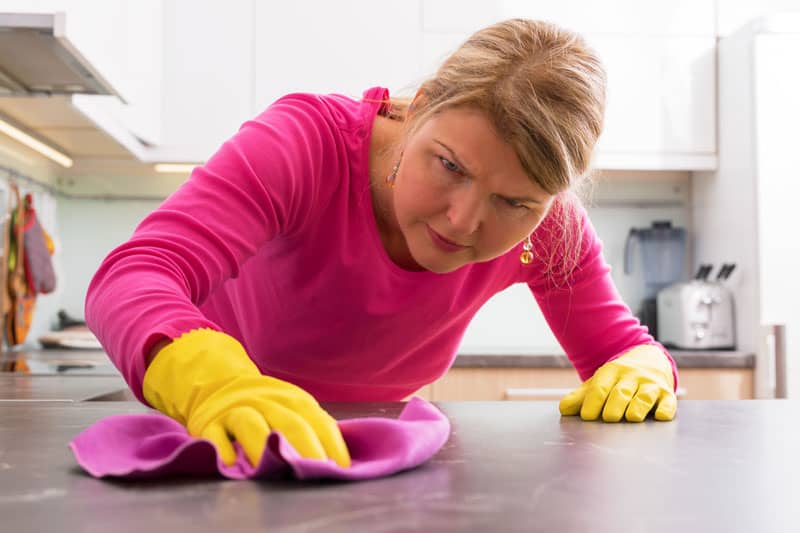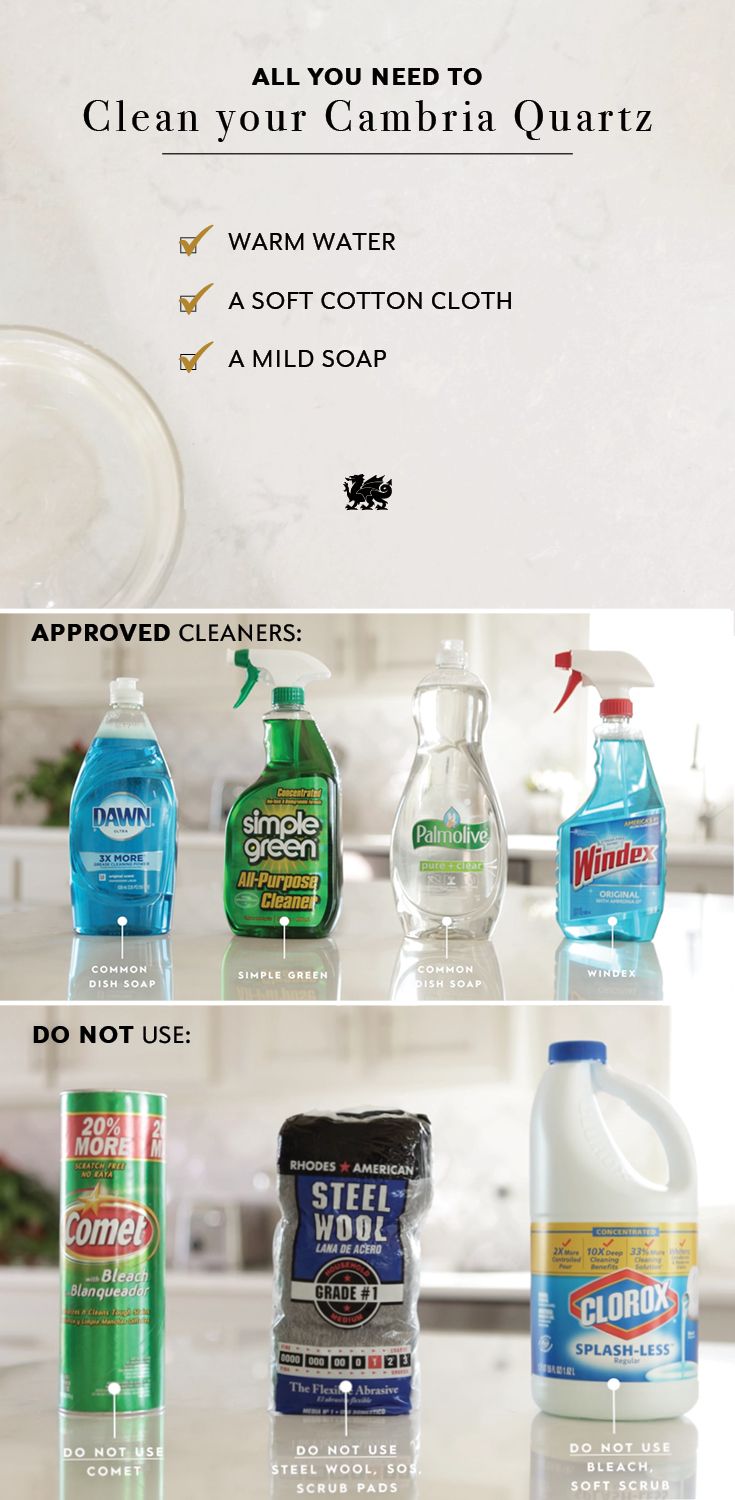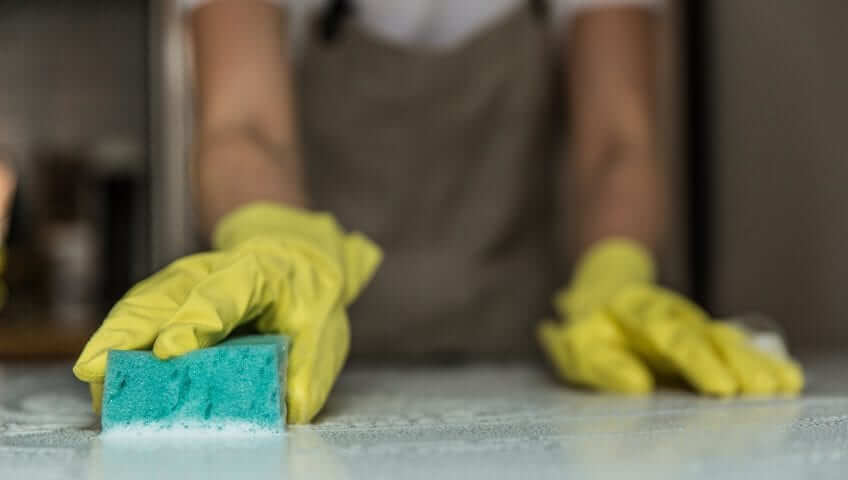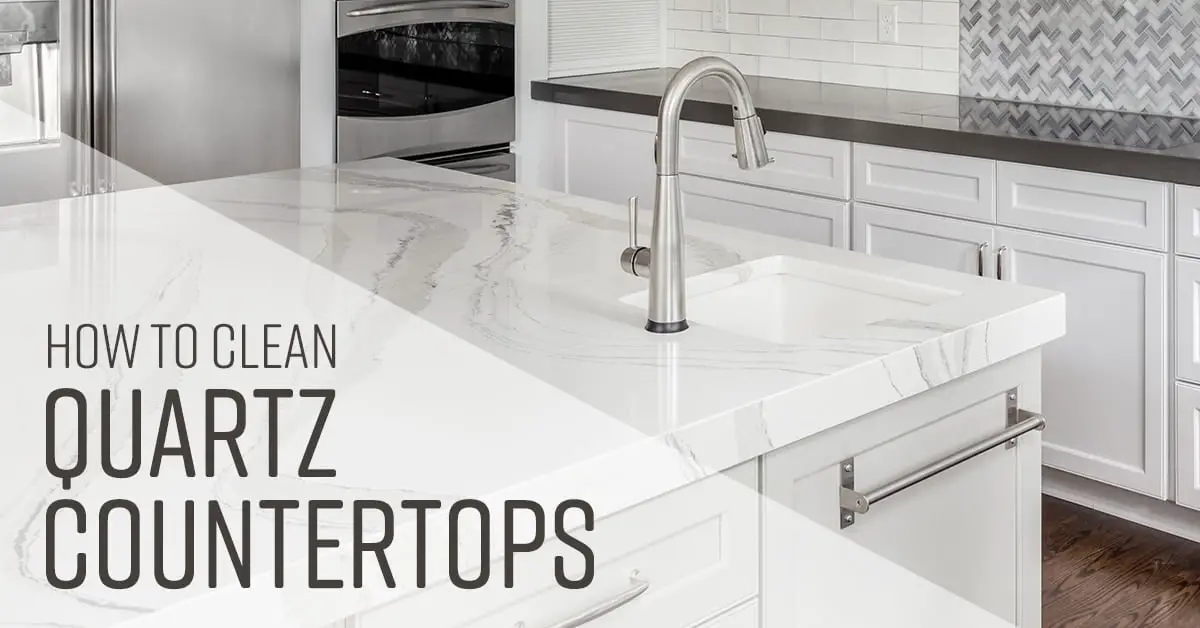How To Clean Quartz Countertops- Based On Different Stains
How to clean quartz countertops is a powerful query to question if you are considering investing in this exquisite engineered stone for your house. Whether you are aiming to purchase quartz counters for your bathroom or your kitchen, it is the countertop material that you will be overly satisfied with no matter what.
Quartz countertops are not so demanding to care for. They are relatively low maintenance. Appropriate care and upkeep are reasonably necessary if you desire to keep your kitchen countertops appearing very best.
Quartz is favorably sought after as a good finish for your kitchen countertops because of the rich untamed color pattern, ease of upkeep, and durability. Once established, the grand material usually just needs a simple wipe down to maintain it clean and keep its luxurious appearance.
However, understanding which cleaning practices and products not to utilize on the quartz countertop is as vital as learning which to use. Conduct everyday cleaning tasks using a mild soap mixture and a soft fabric or sponge, and run clear of rough scrubbers and cleaners that might spoil the sealed surface of your installed quartz.
This article will learn how to clean quartz countertops adequately based on the type of stains you notice.
How to clean quartz countertops-
1. How to clean quartz countertops with basic messes and spills

1. Wet a washcloth using warm, soapy water- To maintain your quartz countertops hygienic, you usually will not require anything more sophisticated than a mild soap solution. Generally, it is most suitable to use a mild dish detergent that does not possess any astringents and harsh chemicals. These things can fray down quartz when used repeatedly.
The resins employed to complete quartz make the finish invulnerable to everyday stains, dirt, dust, and mold. Warm water is highly effective for removing resilient blemishes than cold water.
2. Wipe down the stained area- Run over the exterior of the countertop in smooth, circular movements. The majority of stains must come right off using only a little effort. For dehydrated or sticky remnants, put more soap solution as required.
Get in the routine of scrubbing the countertops each time you do any significant cooking, meal prep, or baking.
3. Wash the countertop using freshwater- Squeeze out and rewet the fabric or sponge, then run back over the quartz countertops once more to remove away any last scraps of soap. Absorb up standing water using a paper towel and let the quartz air dry.
Soaps will patch into a scummy remain if they are not adequately washed away. Once the countertop is waterless, wipe it down using your hands to make foolproof that no food stays.
4. Clean up spills as soon as they occur- Saleable quartz is non-permeable, suggesting it will not soak and lock in stains. However, it is still a great idea to manage crumbs, spills, and other stains before they can be set up. This will protect you from the trouble of using more intensive efforts later on.
The quartz’s natural color and grain pattern might cause some stains to get unnoticed. With a fair amount of upkeep, you can keep the quartz countertops appearing new for years.
2. How to clean Quartz countertops with deep stains

1. Scrape off hardened stains- You might periodically have a problem removing crusty and dried-on slop using only soap and water. It would help if you chipped away at the stained area using a reliable plastic scraper in such situations. It will also allow spraying the gunk using warm water to liquefy it and make it more effortless to lift-off using a little elbow grease.
Use just elastic-plastic scrapers (don’t use metal) or non-abrasive sponges, and be mindful not to use too much pressure. Applying pressure might form minor scratches or scrapes that can aggravate over time.
Damp paper towels in hot water and employ them to hide stains spread out to a large area.
2. Break down persistent residue with a vinegar solution- Over time, food and mineral residues from hard water may cause a film to mold on the quartz countertops that a regular wipe-down might only smear around. A little refined white vinegar will cut right through the accumulated film. Blend equal parts of water and vinegar in a spray bottle, sprinkle the whole counter surface and steer a soft kitchen cloth over it to leave a streak-free brilliance.
If you do not have vinegar on hand currently, you can try using an identical amount of hydrogen peroxide.
Vinegar is an excellent natural cleanser, but it has a sour smell that can be overpowering. Combining in a few drops of your preferred essential oils or lemon juice will scent the room with a lovely fragrance.
3. Treat more tough stains with specialty cleaning derivatives- Should you ever be required to terminate more troublesome stains or materials like chewing gum, glue, or ink, take an oil-based remover. Apply the cleanser lightly to the countertops and let it sit for a couple of minutes, then rub out the mess and the over cleaner with a damp cloth.
Regular rubbing alcohol might also help loosen distinctive substances.
4. Spray the countertops occasionally with a glass cleaner- As quartz becomes older, the transparent resin sealant can begin to seem cloudy. A spritz of mirror cleaner will assist in reducing some of the opaqueness, having the finish look glossy and sparkling. This is a practice to achieve about once a month, or whenever you detect that the countertops no longer appear glossy like they used to.
Everyday household products such as Windex, 3M Glass Cleaner, and Clorox Multi-Surface, are all secure to use on quartz countertops. Once you use a glass cleaner, brush the countertops using a cloth or sponge instead of a paper towel to avoid leaving behind tiny fibers.
3. How to clean quartz countertops to preserve the finish

1. Use only non-abrasive tools and cleaners- Quartz is reasonably resilient, but it is not imperishable. Abrasive materials are sufficient to form minor scratches in the smooth resin material or underlying stone that are usually permanent. Similarly, it is likely for harsh chemicals like oven cleaners or bleach to force bubbling, discoloration, or staining.
Play it safe and adhere to harmless cleaning mixtures like vinegar and liquid detergents. It is never a great idea to cleanse quartz using steel wool, pumice stone, sandpaper, or any stiff-bristled brush. When prepping meals, utilize a different cutting board to prevent random scratches or gouges.
2. Prevent exposing quartz to high temperatures- Quartz is not suggested to fight intense heat. Always set up a hot pad or any trivet when keeping dishes straight out of the microwave oven. If you wish to set down pans and hot pots, do it on your cooktop rather than using the counter.
Most varieties of quartz are only created to endure temperatures of around 300-400°F (or 150-200°C). More excessive temperatures might lead to sudden and intense cracking.
A quartz countertop might not be the most suitable place for appliances that induce a lot of heat, such as toaster ovens and metal rice cookers.
3. Reserve quartz material for indoor countertops- When revealed to constant moisture, sunlight, and temperature fluctuations, quartz is at a more significant risk of withering or breaking. It is a better finish suitable for bathrooms and kitchens inside the home for such reasons. Quartz surfaces are also likely to collect dirt and residue outside, meaning they will need more frequent cleanings.
For other outdoor furnishings, you are better off reaching with materials such as stainless steel, synthetic plastics, aluminum, and water-resistant timbers such as cedar and teak.
If you select to have quartz countertops seated in an outdoor area (such as a patio kitchen or poolside bar, for example), ensure they are safely covered by a shelter or overhang to shield them from natural precipitation or UV light.
How to clean quartz countertops and prevent damage

Step 1: Clean Up stains Immediately
Even though engineered stone such as quartz will withstand stains for only a short period, you must not let the spills sit on the place for too long. You still have the chance of damaging the countertops if you do. It would be best to clean quartz as soon as the stain occurred. You can use a mild soap along with a warm water mix to wash up the spill. Enduring stains can happen if the spill is tea, wine, or coffee. Just be cautious.
Step 2: Protect quartz Countertop From High Temperatures
To shield the quartz countertops from scorching temperatures, you can operate mats or trivets to set the crock pots, electric skillets, or hot pans on. You do not wish to put a boiling material directly on the quartz to harm the countertop. If you are consuming citrus-like drinks, make it foolproof to use coasters. Citrus liquids do not interlock well with quartz counters.
Step 3: Use A Cutting Board
Chopping and cutting food instantly on the quartz can be compelling because quartz is long-lasting and rigid, but experts do not suggest it. Consumers encourage to have a cutting board on-site and utilize it when dicing, cutting, and cutting food. Quartz is resistant to scratches, but they are not entirely scratchproof. One more reason cutting boards are needed is that the knives will get dull.
Step 4. Stay Clear From Harsh Cleaners
Employing highly acidic or alkaline cleaners will damage your quartz countertops. If an overly acidic or alkaline liquid falls on the countertops, you should run and grab a damp cloth dipped in a mild detergent and water, then wash it up. Keep methylene chloride, nail polish, bleach, oven cleaner, drain cleaners, turpentine, and other powerful agents away.

